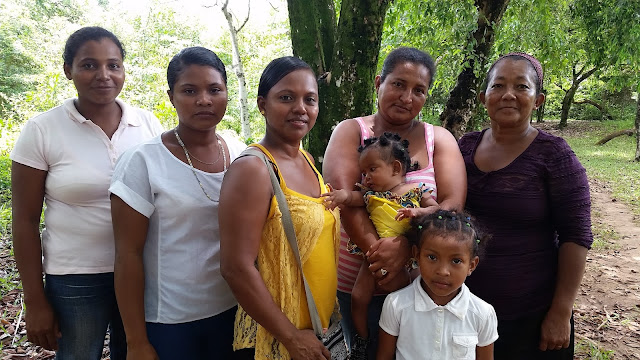An Exciting Start to 2016
by
Byron Morales
January has been the “medicines” month for our program in Honduras. The development work we do is a sort of combined effort of immediate action and long-term solutions.
As the Jesus teaches us, if we see emergency conditions like hunger, clothing needs, health care, etc. we are compelled to respond. Structurally, we need in that answer a process of long-term intervention, but sometimes within that structure there is room for relief work. The long-term response AHMEN has given is the creation of the “Agentes de Salud Integral” initiative training workshops as much of AHMEN’s teams continue to provide relief. Now, within the training program, I have been able to use relief as a form of education.
At the beginning of the year I began organizing donations of medicine for use in the various workshops locations as a teaching mechanism. Donations stock local health centers, and community agents become familiar with the way the medicines are used. In this way, relief and development are merged.
MAP, Medical Assistance Program International, and the local NGO, CONSEDE, contacted me to explore the possibility to manage several pallets of medicines valued in $12,344.
The first pallet was distributed half and a half among the Yorito training program and the Episcopal Church to support their community clinics. The donation to Yorito was received and managed by the Local Committee of the training program, which continues very active exploration of continuing education for the graduates and in close relationship with the Secretary of Health.
Lucia Caceres – MAP/CONSEDE Representant
After this first donation, I contacted MAP-CONSEDE to inquire about receiving additional donations. The Committee from Yorito proposed to the Secretary of Health to pay the fees for five more pallets of medicines. The reduced fee cost for them was of $400 per pallet. At least five Municipalities got involved in this donation and each one of them paid the fees.
Five communities received medicines through this vital donation: Yorito, Jocon, Marales and Sulaco. These medicines will be managed by the “Centros de Salud” with the involvement of the Community Agents graduated under the “Agentes de Salud Integral” Training Program.
Right now, I am looking for a final pallet donation to benefit the new training initiative in La Moskitia and to provide the graduated agents from Cusuna, the birthplace of the training program. We expect an answer from MAP-CONSEDE soon, and if we get this donation the medicines will be taken and distributed by the next Río de Agua Viva Team coming to La Moskitia in June and as part of a training lesson.
Yorito volunteers unloading the pallets
In agreement with UNION BIBLICA, one of the most important Organizations serving churches and youth groups in Honduras, we have also received donation of school materials for elementary teachers.
Currently the first training/provision will take place in Yorito. Lucia Caceres will be supporting the Yorito Local Committee to develop a training plan to be submitted to AHMEN for an approval.
The amount of materials is so important that this month we’ll be meeting with UNION BIBLICA to design an agreement to be submitted to AHMEN about coordination of more educational materials and training that can be expanded to La Moskitia, Cusuna, and Jutiapa.
Educational Materials Donated to Workshops
Next month I will return to Jutiapa to continue the training program there. In coordination with the mayor’s office, we are planning the follow up to the agents directly in their communities to promote the next workshop. Next week with the transportation provided by the Municipality and with the support of two Municipality coordinators we expect good result visiting the Agents as a stimulus to their attendance and continuation in the training program. We continue finding supplies to join also the work of the Jutiapa Community Agents for them to expand also the benefit of donated medicines and nutritional supplies for children and families. By the end of February we will have the first workshop of the advance level in Jutiapa. This is the last phase of the training there, and I expect the Jutiapa community agents to complete the the program by November 2016. Following completion of the training will be the graduation to certify them as Community Agents for Total Health promotion!
Nutritional supplements were also included in the donations to Yorito.
What impact will these vitamins have on her life?

